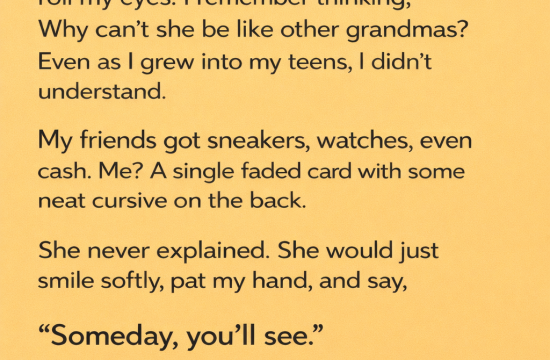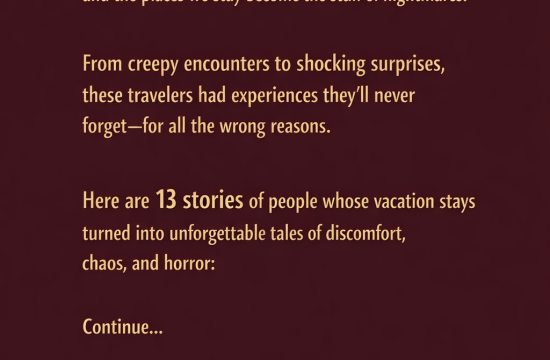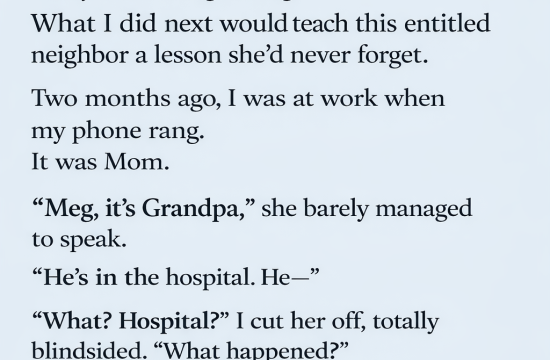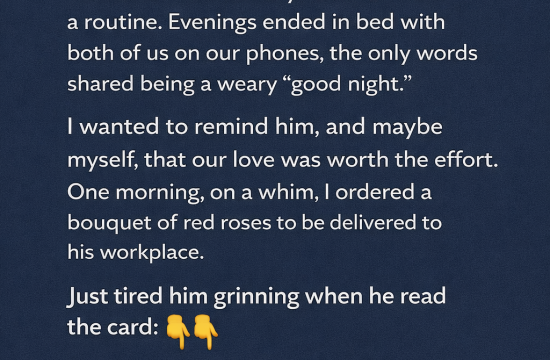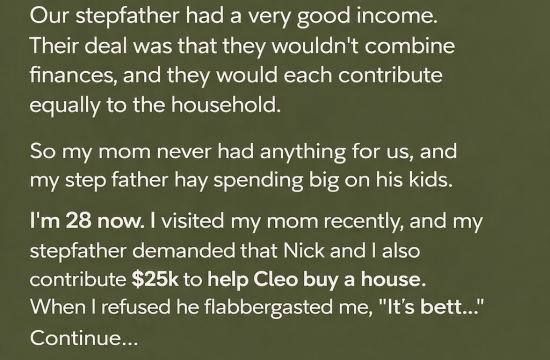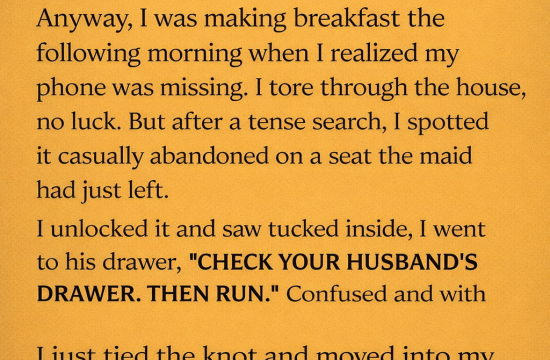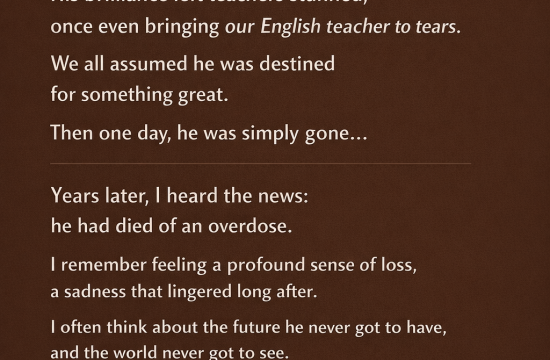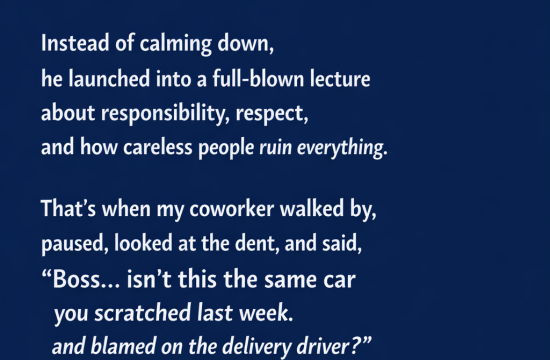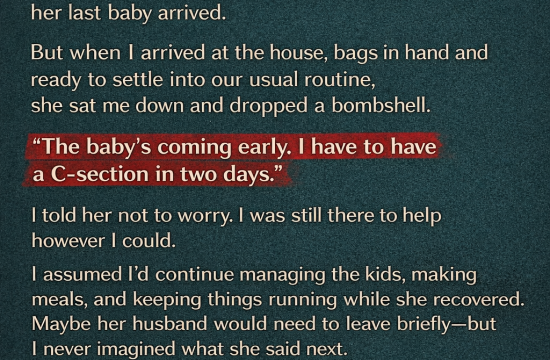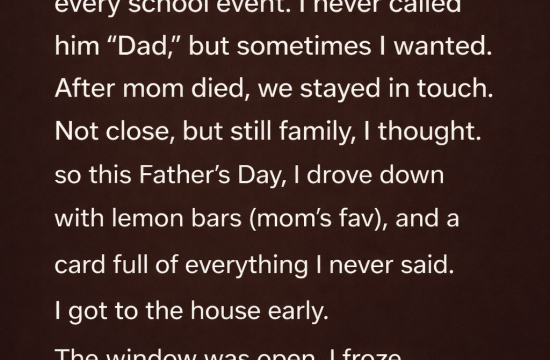I was adopted at birth by a wonderful couple who couldn’t have children of their own. Later, they adopted two more kids—Brian and Kayla—both a few years younger than me. Growing up, we were close. Our parents raised us with love, fairness, and stability. I never felt like anything less than their own.
But everything changed just after my 25th birthday.
I got a letter.
My birth mother had passed away. I never met her, but the agency told me she had quietly followed my life through updates. She never wanted to interfere, never wanted to confuse me—just wanted to know I was safe, loved, and thriving. And when she got sick, she made a decision: she left everything she owned to me.
Her total estate?
$187,000.
I went to her funeral alone. It was small, quiet—almost like a formality more than a farewell. I didn’t know her, not really, but standing there, I felt the echo of her presence. A woman who had carried me for nine months, loved me enough to let me go, and then loved me again from a distance.
But nothing prepared me for what was waiting when I got home.
The second I pulled into the driveway, my stomach tightened. Then I saw it—on the porch.
All my stuff.
My suitcases. My duffel bags. Even my guitar, the one I kept tucked under my bed. At first, I thought we’d been robbed. I ran up the steps just as the front door opened.
Kayla stood there with her arms crossed and an unreadable expression.
“You can’t stay here anymore,” she said flatly.
I blinked. “What are you talking about?”
Brian stepped into view behind her, avoiding my eyes.
“Mom and Dad said… it’s time. You’ve got the money now. You should find your own place.”
I let out a confused laugh, waiting for the punchline. It never came.
Mom and Dad appeared next. Their faces were tired. Nervous. Guilty.
Dad spoke gently. “We’re proud of you. Really. But it’s time to start your life… like a real adult.”
I couldn’t believe it.
They weren’t nudging me toward independence—they were kicking me out. Abruptly. Without warning. Without a conversation. I didn’t expect a celebration for the inheritance, but I didn’t expect exile either.
So I left.
No yelling.
No begging.
Just numbness.
I checked into a cheap motel and sat in the parking lot for almost an hour, staring at nothing. How could I feel so wealthy and so unwanted at the same time?
The next morning, I checked my bank account.
$187,000.
Just sitting there like a cruel joke.
I didn’t touch it. Not for days.
Claire, a friend from college, let me crash in her tiny guest room—no questions asked. One night, she found me scrolling through childhood photos and quietly handed me a beer.
“You’ve always talked about doing something big with your life,” she said.
“Maybe this is your chance.”
Her words planted a seed.
I found a small studio apartment, paid six months’ rent upfront, furnished it, bought a used car… and then I did something that surprised even me.
I volunteered.
The local youth center needed tutors and activity leaders. That’s where I met Jaylen.
Fourteen. Angry. Closed-off. All defense, no trust. Wouldn’t talk to anyone. Wouldn’t make eye contact. But I recognized that energy.
The silent, coiled-up pain of someone who felt disposable.
I would show up early each day and shoot hoops alone. One day, he joined me. No talking. Just playing. It became our unspoken ritual.
Then one afternoon, after everyone else had left, he lingered.
“My mom got arrested again,” he said quietly.
“I don’t… I don’t know if she’s coming back this time.”
I sat in my car that night and cried harder than I had in years.
I realized how much of my life I had spent trying to earn love—from my birth mother, from my adoptive family, from anyone. And suddenly here was a kid who didn’t need perfection. He needed presence.
So I used $20,000 from the inheritance to create a scholarship fund for teens like Jaylen. Quietly. No plaque with my name on it. Just opportunity.
Months passed.
Holidays, too.
No word from my family.
I texted Kayla for her birthday—no reply.
Then one night, my phone buzzed. Dad.
I almost didn’t answer. But something in me softened.
His voice was brittle. He told me Mom had been diagnosed with early-onset Alzheimer’s. Kayla had moved in with her boyfriend. Brian rarely visited.
“The house is… too quiet,” he said.
“Too cold.”
I wanted to scream. But I remembered how it felt that night in the motel—the ache of being disposable. So I agreed to meet him for coffee.
It was awkward. A little painful. But then he pulled out a small envelope. Inside was a photo: a baby—me—being held by a woman I didn’t recognize.
“She gave us this when we adopted you,” he said softly.
“She asked us to give it to you one day.”
My birth mother.
Smiling.
Holding me like I was the whole world.
And suddenly, something inside me loosened.
She hadn’t given me up because she didn’t love me.
She gave me up because she did.
That photo cracked something open.
I started visiting Mom every week. Some days she remembered me. Some days she didn’t. But the days she did… she’d hold my hand and call me her “sweet boy.”
Those moments healed wounds I didn’t know were still raw.
Eventually, Brian, Kayla, and I sat down for a real conversation. No filters. No pretending.
We cried.
We argued.
But we told the truth.
They admitted they felt overlooked when I got the inheritance. That they didn’t know how to process the shift. It didn’t justify what they did—but I understood the insecurity behind it.
Forgiveness wasn’t instant. But it was real.
With the remaining $130,000, I built something bigger: Startline—a nonprofit supporting teens aging out of the foster system. Therapy. Mentorship. Scholarships. Real programs. Real help.
Jaylen was the first enrollee.
Years passed.
Startline grew.
I met Lena—a youth counselor with a warm heart and the loudest laugh in the room. We got married.
Later, we adopted twin girls.
One quiet Sunday, I took them to visit my birth mother’s grave. I introduced her to them like she was still here.
In many ways, she was.
That $187,000 wasn’t just money.
It was a key.
A turning point.
A bridge between who I was… and who I became.
Sometimes the people who hurt us don’t do it out of malice—they’re battling their own storms.
And sometimes the people we lose… still leave us something to hold on to.


